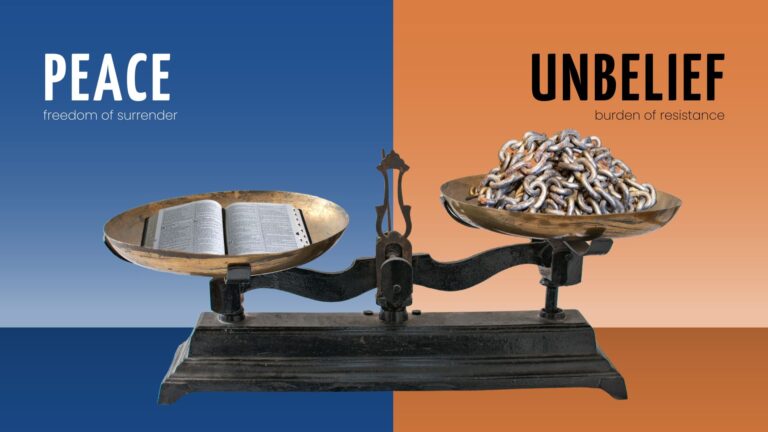Unbelief: A Heart Issue
June 11, 2024
Katherine Schultz
- “The problem of unbelief is not mainly a lack of evidence, but a deep heart resistance to God and his will.” Pastor John Piper
Pastor John Piper’s quote captures the essence of unbelief. Often, the root of unbelief lies not in a lack of evidence but in a heart that resists God. This concept aligns with the 3-dimensional worldview, which encompasses propositional beliefs, everyday behaviors, and heart-oriented attitudes. Understanding unbelief as a heart issue is crucial in addressing it effectively.
Understanding Unbelief
In a biblical context, unbelief is more than mere intellectual doubt. It is a deep-seated resistance to God and His will. This resistance often stems from emotional and experiential factors. The heart plays a pivotal role in shaping our beliefs and unbelief. Hebrews 3:12 warns, “See to it, brothers and sisters, that none of you has a sinful, unbelieving heart that turns away from the living God.”
The Heart of the Matter
The Bible portrays the heart as the center of more than just emotion. It is the seat of will, desire, and intent. David K. Naugle explains, “In Hebraic thought, the heart is comprehensive in its operations as the seat of the intellectual, affective, volitional, and religious life of a human being.” Proverbs 4:23 emphasizes this, stating, “Above all else, guard your heart, for everything you do flows from it.” This comprehensive understanding of the heart reveals that unbelief is deeply rooted in our inner being. It influences our thoughts, actions, and spiritual life.
Examples of Heart Resistance
Biblical characters such as Pharaoh and the rich young ruler exemplify heart resistance to God’s will. Pharaoh’s hardened heart, despite witnessing numerous miracles (Exodus 7-11), showcases a profound resistance to God. Similarly, the rich young ruler in Matthew 19:16-22, despite his earnest seeking, could not surrender his wealth, revealing a heart attachment that hindered his belief. These stories highlight that unbelief often stems from a heart unwilling to fully submit to God.
Eye Witnesses
Additionally, eyewitness accounts provide strong support. As stated in 1 Corinthians 15:3-8, “For what I received I passed on to you as of first importance: that Christ died for our sins according to the Scriptures, that he was buried, that he was raised on the third day according to the Scriptures, and that he appeared to Cephas, and then to the Twelve. After that, he appeared to more than five hundred of the brothers and sisters at the same time, most of whom are still living, though some have fallen asleep. Then he appeared to James, then to all the apostles, and last of all he appeared to me also, as to one abnormally born.” These accounts from those who saw the resurrected Jesus offer substantial testimony to the truth of the resurrection.
Overcoming Unbelief
To address heart resistance, we must understand both the reliability of Scripture and the transformative power of personal testimony. Romans 10:10 states, “For it is with your heart that you believe and are justified, and it is with your mouth that you profess your faith and are saved.” Sharing personal stories of faith and how God has worked in our lives can be powerful in persuading others. Additionally, listening and praying for those struggling with unbelief are crucial steps in this process.
The reliability of ancient manuscripts further supports the authenticity of the Bible. For instance, “Caesar’s Gallic Wars was written about 50 BC, and there are ten surviving manuscripts. Livy’s History of Rome has twenty surviving manuscripts. Tacitus’s Histories and Annals – written about AD 100 – has two manuscripts. Thucydides’s History – which was written about 400 BC – has eight manuscripts” (Piper). In contrast, “according to the Institute of New Testament Textual Research in Münster, Germany, there are 5,800 manuscripts or fragments of manuscripts of the New Testament” (Piper). Such evidence bolsters the case for the Bible’s trustworthiness. Moreover, eyewitness accounts from those who saw the resurrected Jesus, such as the apostles and early disciples, provide substantial testimony to the truth of the resurrection.
Now What?
Unbelief is fundamentally a heart issue, rooted in deep-seated resistance to God. Recognizing this helps us approach the issue with compassion and understanding. By guarding our hearts, as Proverbs 4:23 advises, and seeking God’s grace, we can overcome unbelief. Encouraging others to reflect on their own hearts and sharing the transformative power of personal faith can lead to meaningful change.
Understanding a person’s worldview, including their heart orientation, is vital in discipleship. Whether someone is already a follower of Jesus or not, addressing the heart is key to fostering true belief. Let us be mindful of the condition of our hearts and seek God’s help in nurturing a genuine, unwavering faith.
As Psalm 51:10 reminds us in David’s prayer, “Create in me a pure heart, O God, and renew a steadfast spirit within me,” may we continually seek God’s transformation in our hearts and lives.
We are convinced of the immediate relevance of developing a 3-dimensional and biblical worldview in students so that they have a firm foundation of beliefs that they live out in their daily behavior as they continue with an attitude that orients their heart toward the Lord Jesus Christ throughout their lives.
- What Is the 3-D Worldview Survey?
- Take the 3-D Worldview for yourself
If you haven’t yet used the 3-D Worldview Survey with your class, check out the pdf below for some questions to get you started.
#3dworldview #biblicalworldview #assessingworldview





